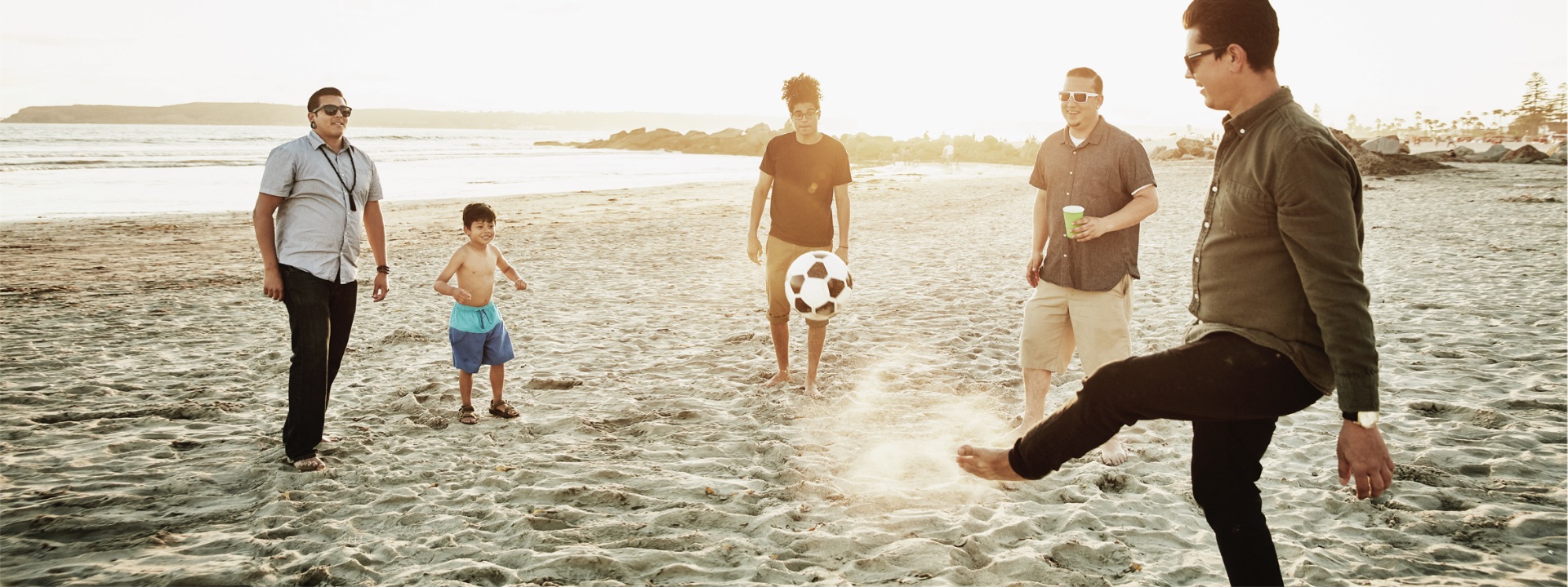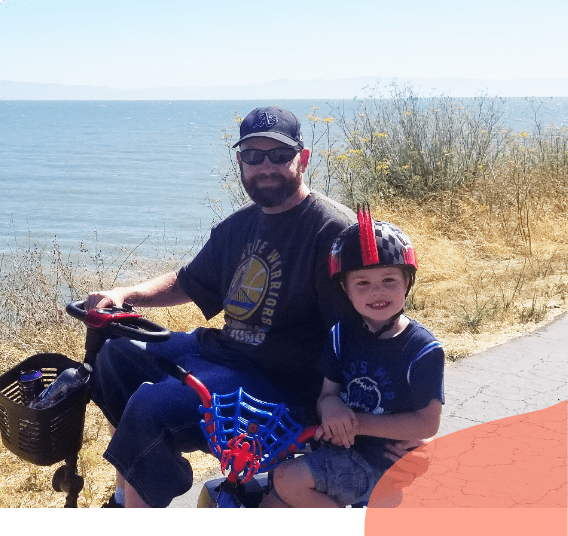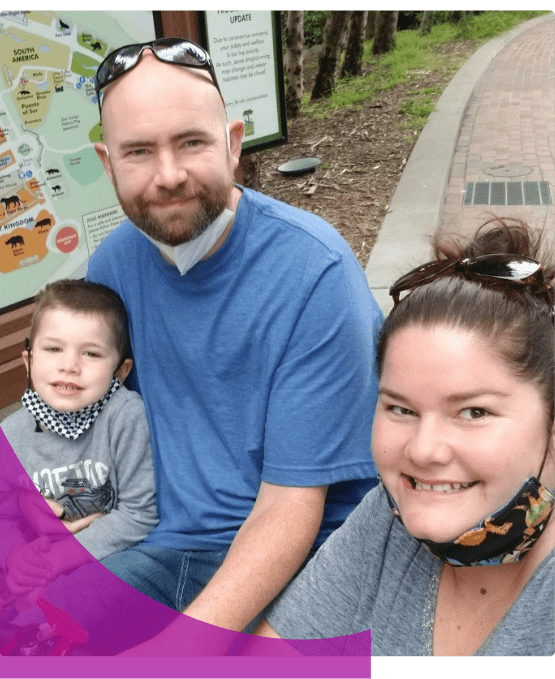

Our potential first-in-class gene therapy candidate for adrenomyeloneuropathy (AMN) has joined Spur’s expanding pipeline of next-generation genetic medicines. Learn more and get updates at SpurTherapeutics.com.
This site will remain live until Q4 2024 as we transition content to our new site.


On a day in July, Steve Parker received two pieces of emotional news. At an ultrasound appointment with his then-pregnant wife, Kathryn, the couple learned that the baby they were expecting was a boy. Like many parents-to-be, Steve was thrilled, nervous, and looking forward to the day he would meet his son. Later that same day, however, Steve would also learn that he had been diagnosed with adrenomyeloneuropathy (AMN), a progressive, genetic condition that affects the spinal cord and is marked initially by weakness, stiffness, and pain in the legs.
In some ways, the news was a relief. Since first experiencing leg weakness at the age of 28, Steve had been diagnosed with two different conditions, but neither seemed to be the right answer. His persistence brought him to Dr. Will North, a neurology specialist at Kaiser Permanente in California, who tested him for AMN. Those tests – and their results – brought clarity to both Steve and his mother, who also has AMN and had been living for years with symptoms, but had never been accurately diagnosed.


You always remember the day of diagnosis and for me, it was especially unique because I learned I was having a son. There were so many emotions that day, but we adapted and learned, and we have been able to work together as a family to cope with my symptoms.


Steven’s family and coworkers are very supportive. He acknowledges, however, that as his mobility declines it becomes harder to do things with his son, now age five. Steve recently purchased a scooter that can go above 5 MPH to help keep up with his son while he rides his bike. Steve also uses a scooter daily at work and at home, finding that it gives him a sense of freedom and it alleviates the worry about how he will get from place to place. And while Steve can’t mow the lawn, he and his wife work together to balance household responsibilities.
“Day-to-day activities are harder… I can’t pop into a convenience store, but my wife and I work well together, and I think we’ve adapted pretty well,” Steve says. “I do what I need to do, but I miss some things that I would like to do.”
Before his diagnosis and his symptoms began to progress, Steve was very active. He first experienced leg weakness while playing basketball—something he used to do every day. He and his wife would regularly go on long bike rides. It’s been hard, he says, to gradually give up the things he enjoys.
Currently, Steve uses a walker, cane, or crutches to support mobility depending on the situation. For any distance greater than 100 feet, he uses his scooter. He has tried several pain management approaches and has found stretching and exercise help somewhat, but he still feels pain and has to make physical adjustments, such as changing the way he sits, to avoid increasing pain in his legs and back.
With AMN being an inherited condition, Steve’s brother was tested when he turned 28 and was negative, while his sister hasn’t been tested. Steven’s mother began experiencing symptoms around age 45, and while her condition progressed slowly, she now uses a wheelchair to get around and needs assistance getting in and out of it. When first learning about his diagnosis the same day he learned about the gender of his baby boy, Steve was worried that his son may eventually develop the condition as well. To his relief, he learned that AMN is an X-linked condition, and can’t be passed on to a son.
Steve has educated himself about AMN and sought out support online and through groups like ALD Connect. Through these conversations, he has met people who are coping with bowel and urinary incontinence, which can occur later in the progression of AMN. Through weight loss, Steve took some early steps to mitigate some of these symptoms but he understands they are likely to develop as time goes on.
I try not to think too much about the future, and what it looks like. I try to take it one day at a time and make it as successful as possible.